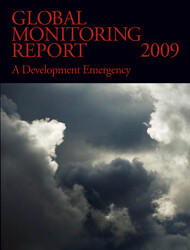
Peru: Technical Assistance Report-Report on the Physical Energy Flow and Air Emissions Accounts Mission (February 3–7, 2025)
Peru: Technical Assistance Report-Report on the Physical Energy Flow and Air Emissions Accounts Mission (February 3–7, 2025)
READ MORE...
Volume/Issue:
Volume 2025
Issue 092
Publication date:
ISBN:
Add to Cart by clicking price of the language and format you'd like to purchase
Available Languages and Formats
Topics covered in this book
This title contains information about the following subjects.
Click on a subject if you would like to see other titles with the same subjects.
Economics- Macroeconomics , Public Finance , Environmental Economics , Environmental Conservation and Protection , Public Policy- Environmental Policy , Energy , Air Emissions , National accounts , Environment , Climate , , Human capital , Climate policy , Climate change , Greenhouse gas emissions , Public Expenditure and Financial Accountability (PEFA)
Summary
A technical assistance mission visited the Instituto Nacional de Estadística e Informática (INEI) of Peru during February 3–7, 2025. The objective of the mission was to review, assess, analyze, and validate the results of the Physical Energy Flow Accounts (PEFA) and Air Emissions Accounts (AEA) for 2019 and discuss dissemination strategies, and guidelines for preparing metadata and data releases of these accounts. The Covid-19 Pandemic affected the availability and timeliness of the source data for compiling the accounts. The accounts for 2019 are being developed as a learning exercise and will be published as experimental accounts in May 2025. The time series up to 2023 will be compiled as soon as the new data is available. This mission was conducted with support from the Switzerland State Secretariat for Economic Affairs (SECO) under a two-year “Environmental and Climate Change Statistics Capacity Development Program” to assist countries in designing and implementing programs for developing timely and internationally comparable statistics that can help in formulating policies to address the environmental, financial, economic, and social implications of climate change. This mission also provided recommendations for improvement as needed, in particular, on the adjustments for residence principle. The mission provided hands-on assistance to make residence adjustments on land, water and air transport operated, both on PEFA and AEA, using national accounts data on transport as well as the data on air transport from the Organization for Economic Cooperation and Development (OECD). Most of the adjustments were incorporated to the accounts on site. The mission also discussed guidelines for preparing the publication of the results of the accounts and their respective metadata. The objective is that by May 2025, the country would release the first set of experimental indicators that can be used for broader stakeholder engagement and for setting up a mechanism for regular production of the accounts. To accomplish this, additional human resources need to be allocated to the compilation of the PEFA and the AEA. The present mission reaffirmed the need to enhance communication, collaboration and coordination among data producing agencies and implement data sharing. To support progress in the above work areas, the mission recommended the following priority recommendations to compile PEFA and AEA: Use the data from the supply and use table of the national accounts and the balance of payments to finalize the adjustments of transport services; publish the results and metadata of the PEFA and the AEA for 2019; and update the AEA for 2019 and compile the accounts for 2020 and 2021 when the inventory data are available in March 2025. Compile the PEFA 2020–2022, as energy balances for those years are already available.
Copyright © 2010 - 2025
Powered by:
AIDC



